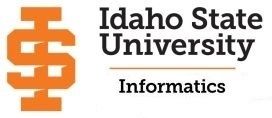Why Consider an Informatics Degree?
A student recently informed me that she was a Computer Science major. When I inquired why, she responded that she liked computers. So, I asked what she wanted to do when she graduated. She told me that she wanted to develop software for a business. I asked if she wanted to develop system software for a business such as Microsoft or Apple, or develop application software for a company like GM or Farm Bureau.
What does it matter? It matters because Computer Science programs prepare students for one purpose, and Business Informatics programs prepare them for another. Most Computer Science programs focus on teaching students to develop systems software like compilers and operating systems, in addition to heavily covering algorithms and data structures. CS programs often require courses like discrete math, linear algebra, Calculus I through III, and supporting courses in the sciences like Physics or Chemistry. When I graduated with a degree in Computer Science from the University of Texas and accepted a position as a software developer for Conoco, Inc., one of the top Fortune 100 companies, I discovered that while my CS coursework prepared me to develop systems software, I knew little or nothing about how application software contributed to the success of the overall business, or even how businesses in general operated. Fast forward thirty years, and a GM recruiter recently told me that they had hired many graduates from some of the more prestigious CS programs in the US, but almost none of those graduates had any idea of the overall role of software systems in the organization and had a lot to learn before they could be useful hires.
Informatics degrees address that shortcoming. Business Informatics is an emerging interdisciplinary field of study that combines Computer Science and Business Administration into one field. Innovative integration of computer technology into vital business operations leads to an IT-based competitive advantage. Our Informatics program is technically rigorous, requiring several programming courses, in addition to courses in software design, database design, and development and implementation methodologies. Equally important, however, is the requirement that Informatics students take courses in accounting, management, marketing, finance, and technical writing so they gain a better understanding of the business world.
Hence, our Informatics graduates have a stronger understanding of the operational facets of an organization than typical Computer Science graduates, allowing them to make an immediate impact when they begin their career. Informatics students generally develop better interpersonal and communication skills, and are typically better versed in assessing the needs of the end-users, therefore making them more capable of tailoring the right software system to satisfy user needs.
So, what do you want to do when you graduate? We want to be sure you are aware of all of your options so you can choose the shortest path that leads to your dreams!
Contact us at ics@isu.edu for more information.

